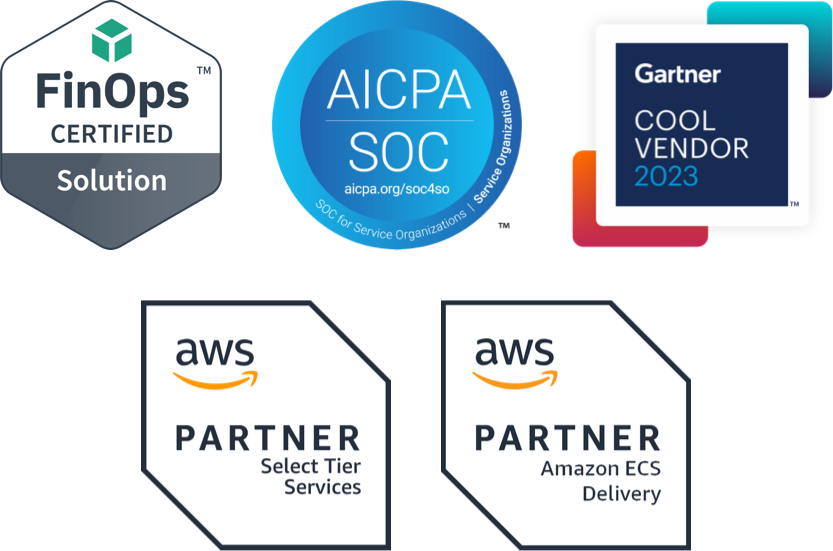Over the last few months, we’ve been working on making a number of updates to Fairwinds Insights to make it simpler for users to manage groupings of Kubernetes resources and policy/guardrails at scale across multiple clusters. Let’s take a look at a few of these updates and how they help you manage and analyze costs, apply policies consistently, and improve reliability.
Latest Insights Updates
One new addition to Insights is the ability to use a date picker filter on the Action Items page. This allows users to filter on and export findings during specific “first seen” and “last reported” time periods. For example, if you needed to report vulnerabilities that were found and fixed in the last 60 days for compliance attestation, you can now do so easily.
We also added additional out of the box support for extended Polaris checks:
- HPA min and maxAvailable, which helps with resource optimization and cost control
- pdbDisruptionsIsZero (on the Policies page), which defines the acceptable level of pod disruptions during events (such as upgrades, scaling, or node failures)
Finally, we added support for wildcards on the Costs page, which allows you to filter workloads with the same prefix naming conventions. This helps to quickly analyze the cost of many like-named workloads, as you can see in the screenshot below.

App Groups Support
In April, we introduced App Groups and Policy Mappings. App Groups are user-specified collections of Kubernetes resources that are matched on any Kubernetes metadata and can be defined across multiple clusters, while Policy Mappings are user-defined collections of specific policies. These Policy Mappings can apply to one or many App Groups. Together, App Groups and Policy Mappings offer powerful functionality because it enables you to fine-tune your Insights Action Item reporting and enforce or block a set of actions based on policy. So, for example, you could create Policy Mappings, such as having labeling conventions for all App Groups, and then have a set of security Policy Mappings that only applies to a specific App Group.
To make this functionality easier to use and manage, we’ve added support for App Groups filtering on the Action Items summary page, added App Groups to Costs Saved Views, and enabled filtering for App Groups in the Costs API. Finally, we fixed App Groups labels to match/exclusion on admission context — in other words, now you can block policy violations based off of label, making policy enforcement more dynamic. App Groups are becoming more integral across the entire Insights solution, making it easier to target specific resources, scale policy, analyze cost, and manage information overload.

Bug Fixes and Enhancements
- Fix on filter options in Vulnerabilities page
- Adding date picker filter on Action Items page
- Add support for HPA min and maxAvailable checks
- Improved capacity page performance
- Added new parameter min days for resources recommendation
- Improved admission requests page performance
- Fixed Total Costs at Pie chart for Costs page when filter returns no workload
- Update filtering columns on vulnerabilities all images page
- Update minimum recommended memory to 64Mi
- Add new query parameters support (hasRepositories and hasWorkloads) on all vulnerabilities top API
- Add pdbDisruptionsIsZero check to Policies page
- Add fees to nodes total costs in Costs page
- Support for contextualized filtering on cost filter API
- Add overhead costs support on Costs page
- Add support to wildcard on Costs page
- Fix bug on GitHub comments not considering Policy Mappings configuration
- Fix misformatted cost in CI/CD Action Items
- Add support for enabled/disabled policy mappings
- Fix Billed Cost Greater Than filter handling on Costs saved views API
- Add App Groups list of values on Costs filters API
- Add sorted list of values for App Groups filter on Action Items page
- Fix Costs page when selecting hourly data
- Fix Teams drop down isn’t filtering correctly on Action Items page
- Add App Groups filtering support on Action Items Summary page
- Improve load performance on App Groups summary page
- Add support for persisting CPU and memory idle info into node capacity history
- Fix GCP cores cost calculation
- Add Billed Cost Greater Than and Efficiencies filters to Costs page
- Add support for App Groups in Costs Saved Views
- Fix recommended CPU cost being $0.00 in some cases
- Add Policy Mapping names to App Group Summaries API
- Add support for App Groups filtering in Costs API
- Improve performance on Automation Rule Log page
- Improve loading time for vulnerabilities page
Questions About Fairwinds Insights or Kubernetes?
Please reach out to us with any questions about Insights, App Groups, the latest updates available in the solution, or how to manage Kubernetes at scale without putting undue stress on your internal teams. We’d be happy to walk through your questions about the latest functionality in Fairwinds Insights to help you take advantage of everything it offers. Please also consider joining the Fairwinds Community on Slack or the user group.
If you don’t want to spend time managing Kubernetes, we also provide Managed Kubernetes-as-a-Service, a people-led service that delivers mission-critical Kubernetes infrastructure.

